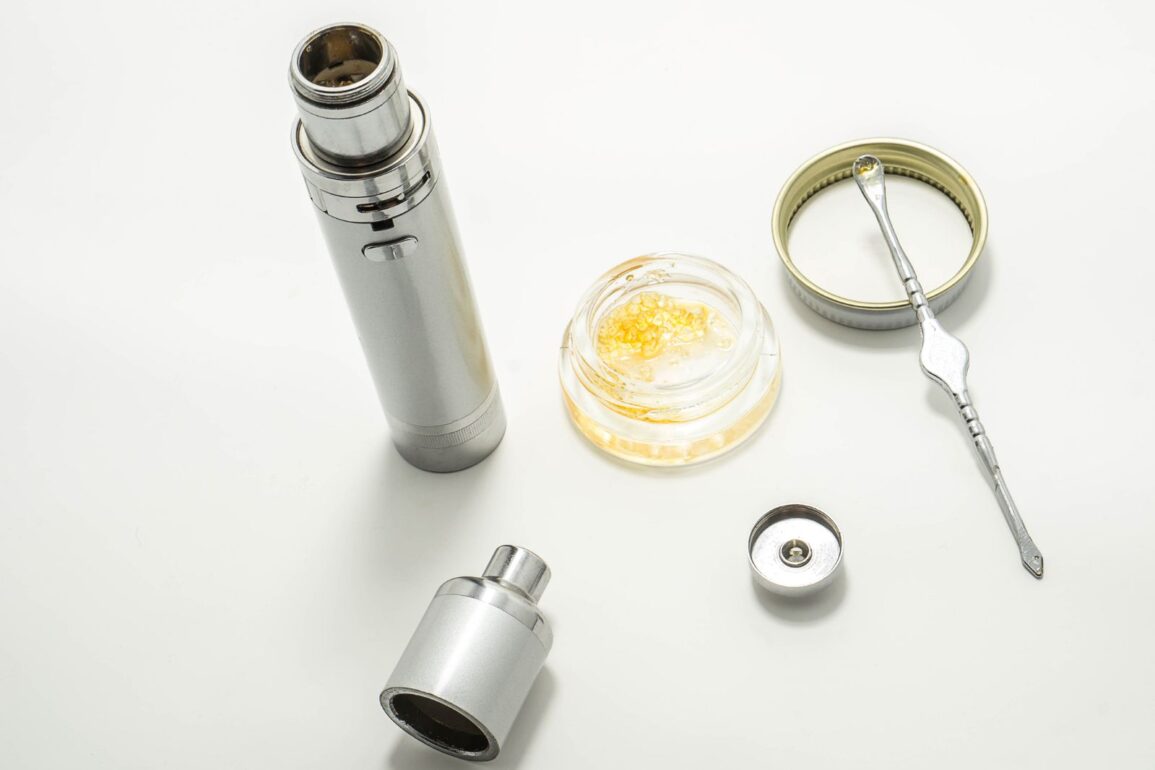In the world of cannabis, cannabinoids play a pivotal role in determining the plant’s effects and potential benefits. THC (delta-9-tetrahydrocannabinol) is the most well-known cannabinoid, often associated with the plant’s psychoactive properties. However, another lesser-known cannabinoid, THCA (tetrahydrocannabinolic acid), has been gaining attention for its unique characteristics and potential therapeutic value. In this blog, we will explore THCA, what is it, how it differs from THC, and how it can be used.
Table of Contents
- What is THCA?
- How Does THCA Work?
- How Do You Use THCA?
- THC vs. THCA: What’s the Difference?
- THCA vs. Delta-9-THC: What’s the Difference?
- THCA vs. Delta-8-THC: What’s the Difference?
- THCA vs. THCV: What’s the Difference?
- FAQs
What is THCA?
THCA is the precursor to THC in the cannabis plant. It is a non-psychoactive cannabinoid, meaning it does not produce the intoxicating effects commonly associated with THC. THCA is found in raw, freshly harvested cannabis and is typically converted to THC through decarboxylation, which occurs when cannabis is heated or dried.
How Does THCA Work?
When THCA is consumed in its raw form, it does not directly interact with the endocannabinoid system (ECS) like THC does. Instead, it is believed to provide potential therapeutic benefits by interacting with other biological pathways, including anti-inflammatory, neuroprotective, and antioxidant effects. Some researchers also suggest that THCA may play a role in modulating the ECS indirectly.
How Do You Use THCA?
Consuming THCA in its raw form requires ingesting raw cannabis, such as cannabis leaves or fresh buds. Juicing raw cannabis or adding it to smoothies is a popular way to consume THCA without experiencing the psychoactive effects of THC. However, it’s important to note that the availability of THCA in this form is limited, as most cannabis products are decarboxylated during processing.
THC vs. THCA: What’s the Difference?
The primary difference between THC and THCA lies in their chemical structures and psychoactive properties. THC is the psychoactive compound responsible for the “high” associated with cannabis use. In contrast, THCA is non-psychoactive and does not produce intoxicating effects.
Another critical distinction is how they interact with the ECS. THC directly binds to cannabinoid receptors in the ECS, primarily CB1 receptors in the brain, leading to its psychoactive effects. On the other hand, THCA does not bind directly to these receptors, and its potential therapeutic benefits are believed to be derived from other mechanisms of action.
THCA vs. Delta-9-THC: What’s the Difference?
THCA and Delta-9-THC are closely related cannabinoids, with THCA being the precursor to Delta-9-THC in the cannabis plant. The primary difference lies in their chemical structures and psychoactivity. THCA is non-psychoactive and does not produce intoxicating effects, while Delta-9-THC is the psychoactive compound responsible for the “high” associated with cannabis use.
THCA vs. Delta-8-THC: What’s the Difference?
Delta-8-THC is another cannabinoid derived from THC, specifically Delta-9-THC. Unlike THCA, Delta-8-THC and Delta-9-THC are psychoactive, but Delta-8-THC generally has milder psychoactive effects. THCA remains non-psychoactive unless it undergoes decarboxylation.
THCA vs. THCV: What’s the Difference?
THCV (tetrahydrocannabivarin) is a distinct cannabinoid from THCA, Delta-9-THC, and Delta-8-THC. While THCA and THC are derived from the same precursor, THCV has a different chemical structure. THCV is known for its potential to modulate the effects of THC and its potential appetite-suppressant properties, which sets it apart from THCA—answering
FAQs
Is THCA psychoactive?
No, THCA is not psychoactive in its raw form. It becomes psychoactive as it converts to Delta-9-THC through decarboxylation, which occurs when cannabis is heated or dried.
What are the potential therapeutic benefits of THCA?
THCA is believed to offer potential anti-inflammatory, neuroprotective, and antioxidant properties. Additionally, it may aid in managing nausea and appetite stimulation.
Can you consume THCA directly?
THCA can be consumed directly by ingesting raw cannabis, such as fresh leaves or buds. Juicing natural cannabis or adding it to smoothies are popular ways to consume THCA without experiencing the psychoactive effects of THC.
How is THCA converted to Delta-9-THC?
THCA undergoes decarboxylation when exposed to heat or prolonged storage. This process removes a carboxyl group from the molecule, restoring it to Delta-9-THC and activating its psychoactive effects.
Is THCA legal?
The legal status of THCA varies depending on the jurisdiction and the specific product. In some places, THCA-rich products may be considered legal if they contain only trace amounts of Delta-9-THC.
Disclaimer – The contents of this article are provided solely for informational purposes and should not be considered medical advice. It is important to note that the information presented here is not meant to diagnose, treat, cure, or prevent any disease. Prior to embarking on any new health-related regimen, Always consult your healthcare provider before trying new supplements or treatments. Keeping you safe and well is our top priority. Additionally, it’s important to note that the FDA has not endorsed any claims regarding the health benefits of cannabis. Delta8Hub makes no guarantees or warranties regarding the accuracy, completeness, or usefulness of any messages contained here in.

